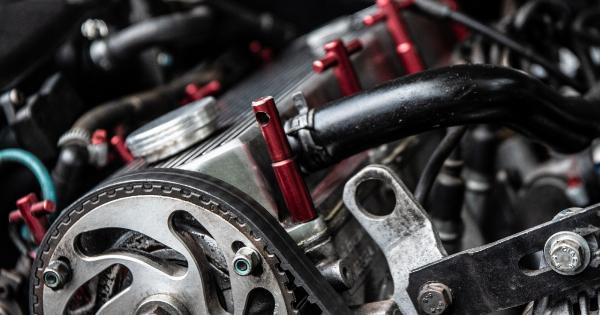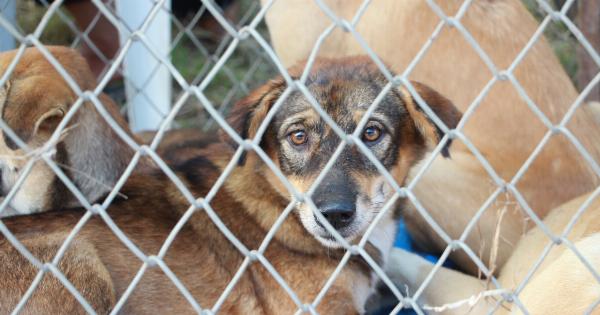Animal abuse is a pressing issue that continues to plague our society. Every day, countless animals suffer at the hands of humans, subjected to cruel treatment, neglect, and exploitation.
Despite growing awareness about the importance of animal welfare, current legal protections often fall short in preventing and addressing animal abuse. This article delves into the urgent need for stronger legal safeguards to protect animals from abuse and highlights the detrimental consequences of failing to do so.
The Scope of Animal Abuse
Animal abuse encompasses a wide range of behaviors, from overt acts of violence to more subtle forms of neglect. Physical abuse includes beating, kicking, and using animals for cruel sports or entertainment.
Neglect involves denying animals proper food, water, shelter, or medical care. It is not uncommon to find animals chained or confined in unsanitary and cramped conditions, leading to immense physical and psychological suffering.
Furthermore, the use of animals in various industries such as factory farming, animal testing, and entertainment also constitutes abuse due to the inherent cruelty and exploitation involved.
The Current Legal Framework
While many countries have legislative measures in place to address animal cruelty, the efficacy of these laws varies widely. In some jurisdictions, animal abuse is considered a criminal offense, with penalties that range from fines to imprisonment.
However, these penalties often fail to serve as a sufficient deterrent, as they are not stringent enough or are inconsistently enforced. Additionally, legislation surrounding specific industries that exploit animals, such as factory farming or animal experimentation, may be lax or completely absent.
The Link between Animal Abuse and Violence towards Humans
Studies have repeatedly demonstrated a strong correlation between animal abuse and violence towards humans. Individuals who inflict harm on animals are more likely to engage in subsequent acts of violence, including domestic abuse and even murder.
This cyclical pattern of violence underscores the urgent need to address animal abuse not only for the sake of animal welfare but also to protect human safety.
Impact on Animal Welfare
Animal abuse inflicts immense physical and emotional suffering on its victims. Animals can experience severe injuries, chronic pain, and long-lasting trauma.
Moreover, the distress caused by abuse can disrupt their natural behaviors and lead to various health issues. Animals subjected to neglect or confinement are more prone to develop anxiety, depression, and other psychological disorders.
By strengthening legal protections against abuse, we can significantly improve animal welfare and ensure that animals are treated with compassion and respect.
Psychological and Societal Consequences
Not only does animal abuse harm the animals directly affected, but it also has serious psychological and societal repercussions. Witnessing or tolerating animal abuse normalizes violence, desensitizes individuals to suffering, and erodes empathy.
This not only places animals at risk but also perpetuates a culture of violence that undermines the moral fabric of society. By implementing stricter legal measures, we can foster a more compassionate society that values the rights and welfare of all beings.
The Economic Toll of Animal Abuse
Animal abuse not only has moral implications but also exerts a significant economic burden on society.
The costs associated with investigating and prosecuting cases of animal abuse, as well as the resources required to provide medical care and rehabilitation for abused animals, add up to a substantial financial strain. Moreover, the negative publicity generated by instances of animal abuse can tarnish the reputation of industries and even entire communities, resulting in economic losses.
International Efforts and Best Practices
Some countries have taken significant strides towards strengthening legal protections for animals. Several European nations have banned cruel practices such as fur farming and the use of wild animals in circuses.
Furthermore, international organizations like the World Society for the Protection of Animals (WSPA) have been at the forefront of advocating for better legal safeguards and promoting animal welfare globally. By examining these successful initiatives and adopting best practices, nations can learn from one another and establish more comprehensive legal frameworks to combat animal abuse.
Advocating for Change
As concerned citizens, we have the responsibility to advocate for stronger legal protections against animal abuse.
By voicing our concerns to lawmakers, supporting animal welfare organizations, and raising awareness within our communities, we can drive societal and legislative change. Additionally, educating the public about the consequences of animal abuse and promoting responsible pet ownership can contribute to preventing instances of cruelty.
Conclusion
Animal abuse is an urgent and pervasive issue that demands immediate attention. Strengthening legal protections for animals is necessary to safeguard their welfare, protect human safety, and uphold the fundamental principles of compassion and empathy.
By recognizing the link between animal abuse and violence towards humans, understanding the economic toll, and learning from international efforts, we can work towards creating a society that respects and cherishes the rights of all living beings.































